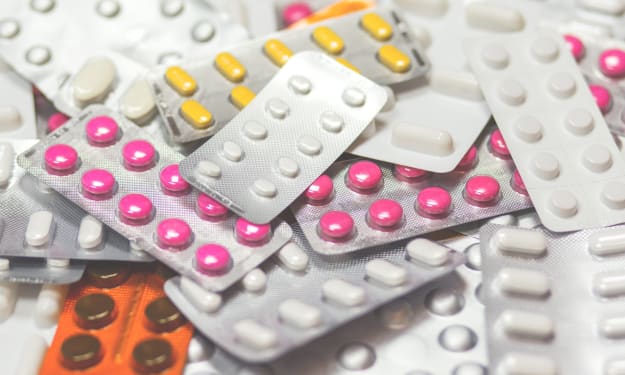Soap or Hand sanitizer
Which is more effective?

Up close, your hands don't appear to be smooth at all. A virus could hide in any number of peaks, valleys, folds, or rifts on the surface. The virus can then spread to your face if you do so. However, using soap and water and hand sanitizer are two incredibly easy ways to prevent that from happening. The coronavirus that causes COVID-19 is one of many viruses whose outer layer of defense is composed of a lipid bilayer, so which is better? These lipids are pin-shaped molecules with heads that are drawn to water and tails that are drawn away from it. Lipids naturally form a shell like this, with the heads on the outside and the tails on the inside, in water-rich environments. This phenomenon, known as the hydrophobic effect, causes the lipids to adhere loosely to one another when exposed to water.
This virus's outer structure aids the molecular machinery in the virus's ability to breach cellular membranes and take over our cells. However, it has countless weak spots where the appropriate molecules could tear it apart. And that's where soap comes in. Any brand of soap contains quadrillions of amphiphile molecules, which resemble biological lipids. They compete for space with the lipids that make up the virus's shell with their tails, which are similarly repulsed by water. However, they are barely different enough to disrupt the virus's membrane's regularity, bringing the entire system toppling. The RNA and proteins of the virus are then enclosed in bubbles made by those amphiphiles. Water will wash away the entire bubble if you use it. The way hand sanitizers work is more like an earthquake than a crowbar. The hydrophobic effect is what strengthens the bonds inside the membrane of a coronavirus when it is surrounded by water.
The large proteins that make up the spikes on coronaviruses are held in place and in the proper shape by the same effect, allowing them to infect your cells. The virus retains its stability when air is used to dry it out. Instead, put a lot of an alcohol around it, like the ethanol or isopropanol found in most hand sanitizers. Due to the molecules' increased mobility, the hydrophobic effect is eliminated. The overall effect is like removing all of the nails and mortar from a house and then hitting it with an earthquake. The cell’s membrane collapses and those spike proteins crumble. In either method, the actual process of destroying the virus happens in just a second or two. But doctors recommend at least 20 seconds of hand-washing because of the intricate landscape that is your hand. Soap and sanitizer need to get everywhere, including your palms, fingertips, the outsides of your hands, and between your fingers, to protect you properly. And doctors advise washing your hands with soap and water as often as possible during a coronavirus outbreak. Even though both approaches are similarly effective at killing the virus, soap and water has two benefits: first it washes away any dirt which could otherwise hide virus particles.
But more importantly, it’s simply easier to fully cover your hands with soap and water for 20 seconds. Of course, hand sanitizer is more convenient to use on the go. In the absence of a sink, use the sanitizer as thoroughly as possible and rub your hands together until they’re dry. Unfortunately, there are billions of people who don’t have access to clean drinking water, which is a huge problem at any time but especially during an outbreak. Researchers and aid groups are working to provide solutions for these communities. One example is a device that uses salt, water, and a car battery to make chlorinated water that kills harmful pathogens and is safe for hand-washing. So wherever possible, soap and water are recommended for a coronavirus, but does that mean it's best for every viral outbreak? Not necessarily. Many common colds are caused by rhinoviruses that have a geometric protein structure called a capsid instead of a lipid membrane.
The capsid doesn't have nearly as many weak points where soap amphiphiles can pry it apart, so it takes longer for soap to be effective. However some of its surface proteins are still vulnerable to the destabilizing effect of hand sanitizer. In this and similar cases, hand sanitizer may be more effective, especially if you then wash your hands to remove residual particles. The best way to know which to use for any given outbreak is to do what's best for all things illness-related: follow the advice of accredited medical professionals.
About the Creator
Enjoyed the story? Support the Creator.
Subscribe for free to receive all their stories in your feed. You could also pledge your support or give them a one-off tip, letting them know you appreciate their work.






Comments
There are no comments for this story
Be the first to respond and start the conversation.